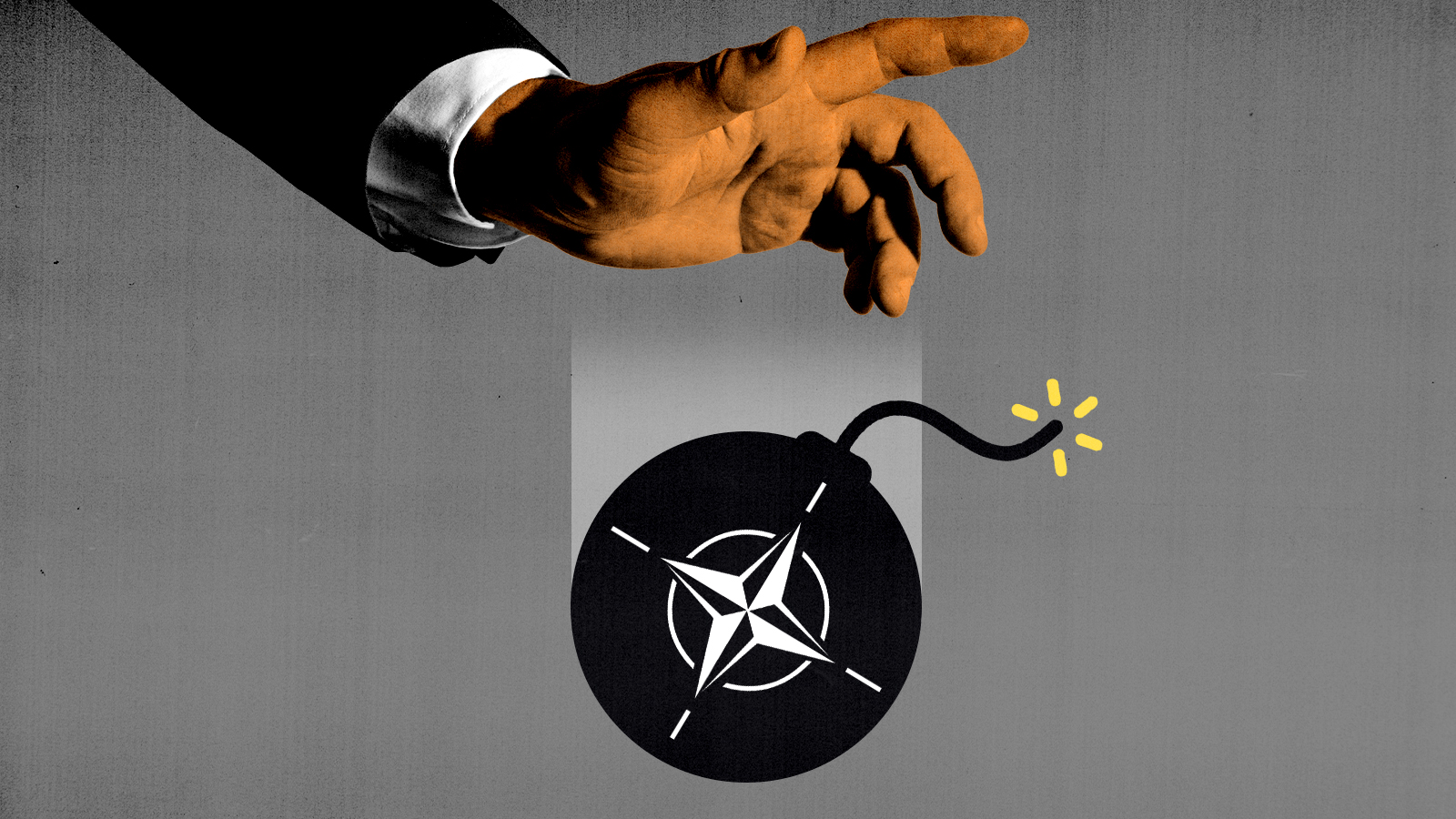The war hawks are at it again


A free daily email with the biggest news stories of the day – and the best features from TheWeek.com
You are now subscribed
Your newsletter sign-up was successful
For America's national security hawks, old habits die hard.
Washington Post columnist Max Boot is probably best known these days as a Never-Trump conservative, a figure who spent much of his career making common cause with Republicans and then later repented of it all. Before that, though, he was for years a leading cheerleader for America's war in Iraq — a disaster that in recent years he has acknowledged was "all a big mistake."
One might think such big mistakes (and an admirable willingness to acknowledge error) would lend themselves to humility regarding subsequent matters of war and peace. But with a possible Russian invasion of Ukraine looming, Boot is once again rooting for actions that make war more likely.
The Week
Escape your echo chamber. Get the facts behind the news, plus analysis from multiple perspectives.

Sign up for The Week's Free Newsletters
From our morning news briefing to a weekly Good News Newsletter, get the best of The Week delivered directly to your inbox.
From our morning news briefing to a weekly Good News Newsletter, get the best of The Week delivered directly to your inbox.
In his latest column, Boot urges American leaders to clamp down on Russia's Vladimir Putin before Putin uses threats and military force to resurrect the old Soviet empire. As part of those efforts, Boot proposes an aggressive expansion of the NATO alliance. The organization "needs to bolster its military presence in Eastern Europe," Boot writes, "and renew efforts to bring Sweden and Finland into the alliance to make clear that Putin's efforts to cripple NATO will backfire."
That's a terrible idea.
It's not at all clear that countries like Sweden and Finland actually want to join NATO. Sweden actively cooperates with the military alliance — and the country's leaders have made clear that Russia won't dictate its future choices on that front — but the current governing coalition still favors official neutrality. In Finland, meanwhile, just 28 percent of the country's population likes the idea.
More importantly, Putin clearly sees NATO expansion as a threat — demanding a guarantee that the organization denies membership to Ukraine and other ex-Soviet states. Western pundits have assured themselves that Russia's leader is just reaching for excuses to expand his country's dominance and control over its neighbors, and maybe that's true. Still, it's likely that genuine efforts to expand NATO would be greeted as a provocation by Russia. Why go there? Talk of expanding NATO during this crisis allows hawks to take a tough stance against Moscow without urging the U.S. into an actual war, but it also throws tinder on the fire and makes war more possible.
A free daily email with the biggest news stories of the day – and the best features from TheWeek.com
Maybe all this changes if Russia does indeed go to war against Ukraine. Maybe there is no way to avoid the outbreak of conflict and violence. That hasn't happened yet, though. For now, this is the moment to be trying to lower tensions, not raise them.
Joel Mathis is a writer with 30 years of newspaper and online journalism experience. His work also regularly appears in National Geographic and The Kansas City Star. His awards include best online commentary at the Online News Association and (twice) at the City and Regional Magazine Association.
-
 Political cartoons for February 22
Political cartoons for February 22Cartoons Sunday’s political cartoons include Black history month, bloodsuckers, and more
-
 The mystery of flight MH370
The mystery of flight MH370The Explainer In 2014, the passenger plane vanished without trace. Twelve years on, a new operation is under way to find the wreckage of the doomed airliner
-
 5 royally funny cartoons about the former prince Andrew’s arrest
5 royally funny cartoons about the former prince Andrew’s arrestCartoons Artists take on falling from grace, kingly manners, and more
-
 Why is the Trump administration talking about ‘Western civilization’?
Why is the Trump administration talking about ‘Western civilization’?Talking Points Rubio says Europe, US bonded by religion and ancestry
-
 Witkoff and Kushner tackle Ukraine, Iran in Geneva
Witkoff and Kushner tackle Ukraine, Iran in GenevaSpeed Read Steve Witkoff and Jared Kushner held negotiations aimed at securing a nuclear deal with Iran and an end to Russia’s war in Ukraine
-
 ‘The mark’s significance is psychological, if that’
‘The mark’s significance is psychological, if that’Instant Opinion Opinion, comment and editorials of the day
-
 Big-time money squabbles: the conflict over California’s proposed billionaire tax
Big-time money squabbles: the conflict over California’s proposed billionaire taxTalking Points Californians worth more than $1.1 billion would pay a one-time 5% tax
-
 Did Alex Pretti’s killing open a GOP rift on guns?
Did Alex Pretti’s killing open a GOP rift on guns?Talking Points Second Amendment groups push back on the White House narrative
-
 Washington grapples with ICE’s growing footprint — and future
Washington grapples with ICE’s growing footprint — and futureTALKING POINTS The deadly provocations of federal officers in Minnesota have put ICE back in the national spotlight
-
 Trump’s Greenland ambitions push NATO to the edge
Trump’s Greenland ambitions push NATO to the edgeTalking Points The military alliance is facing its worst-ever crisis
-
 Why is Trump threatening defense firms?
Why is Trump threatening defense firms?Talking Points CEO pay and stock buybacks will be restricted
